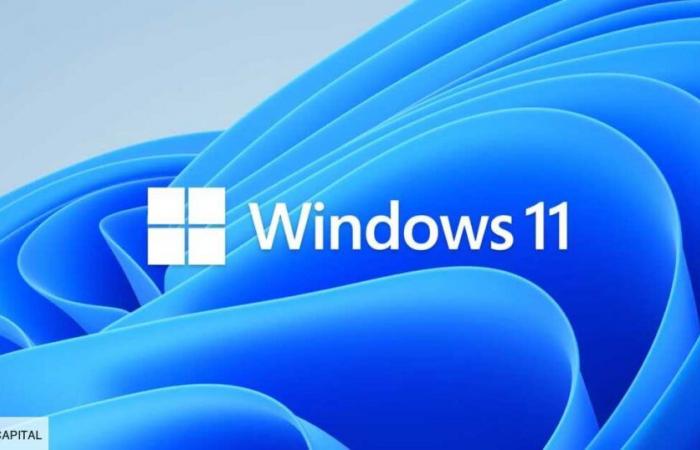As the Windows 10 end-of-support deadline approaches, American giant Microsoft is increasing pressure to accelerate the transition to Windows 11. The firm has just published a warning for those using Windows 11 on machines not compatible. Or rather, Microsoft has just absolved itself of any responsibility in the event of a problem.
Heavily criticized, the strict hardware requirements of Windows 11 exclude many computers while some are fully capable of running Microsoft’s latest OS. Among the compatibility criteria, the need for a processor equipped with a TPM 2.0 (Trusted Platform Module) security chip.
Risks to assume
On its support site, Microsoft warns that the computer could suffer from stability and compatibility issues and that the user will have to “be comfortable” with this risk. Worse, updates, including security updates, will not be guaranteed for these configurations. The company has even provided a disclaimer of liability that the user must accept when installing Windows 11 on their machine. Additionally, if the PC is still under warranty, it will no longer apply.
© Capital
The firm still facilitates the return to Windows 10 for dissatisfied users, but they will have a maximum period of ten days to do so. For those who would like to keep Windows 10 after 2025, Microsoft offers a… paid alternative: an extended support program billed at $30 per year for individuals.
This service is limited to three additional years, after which you will have to risk using an unsecured machine (bad idea) or buy a new computer. This leaves little room for maneuver. The most tech-savvy, however, can install an operating system other than Windows, such as Linux.
Pushing adoption of Windows 11…
This warning from Microsoft comes as the company recently toughened its policy towards circumvention methods for installing Windows 11 on non-compliant devices. The practice aimed, for example, at avoiding Microsoft’s compatibility analysis before updating to Windows 11 was blocked by the company this summer.
While Windows 10 remains dominant in the IT landscape with around 62% market share compared to 35% for Windows 11 three years after its launch, according to StatcounterMicrosoft has considerably accelerated its strategy aimed at pushing users towards its new ecosystem this year. In particular, the company began forcing the update on compatible PCs a few months ago.
…and Copilot+
On its page dedicated to the end of Windows 10 supportthe company also promotes new lines of computers, some of which are equipped with advanced technologies such as neural processing units (NPUs) and artificial intelligence features made in Microsoft. The Copilot+ label, giving pride of place to iA, requires modern hardware like this Samsung PC tested by Labo Capital.
By pushing for the renewal of the machines themselves, Microsoft is pushing the adoption of its new AI functionalities. As a reminder, the Californian giant has invested a tidy sum, estimated at $10 billion, in OpenAI, the company behind ChatGPT. Still, this policy contributes to the growth of electronic waste, a major ecological issue.






